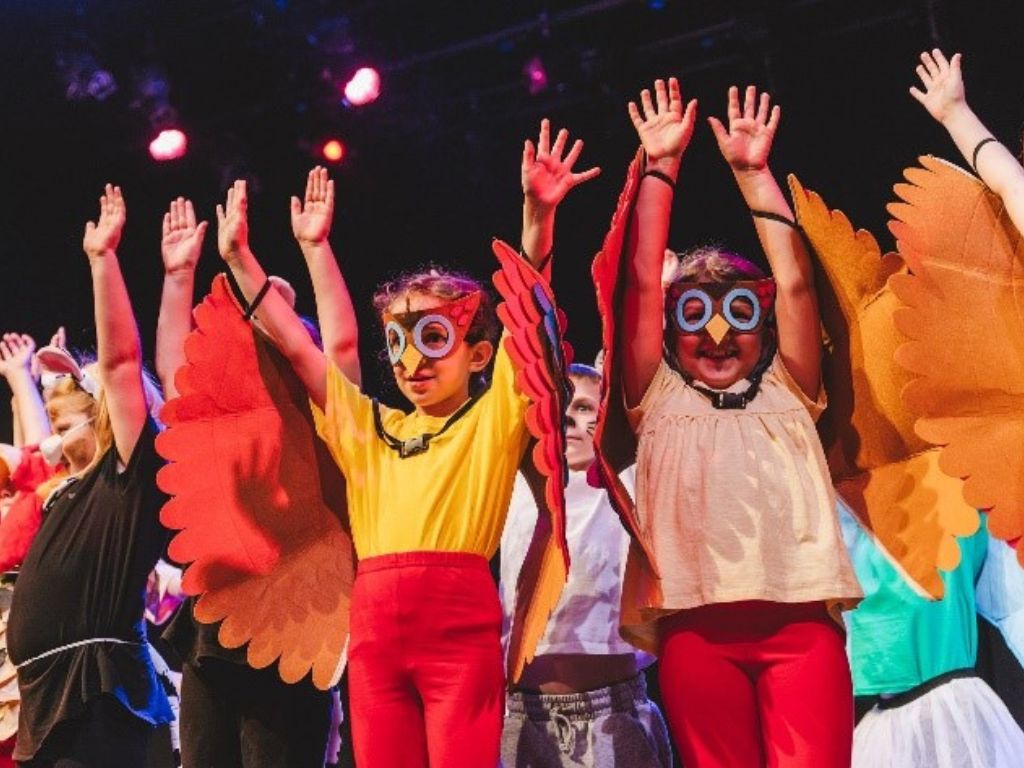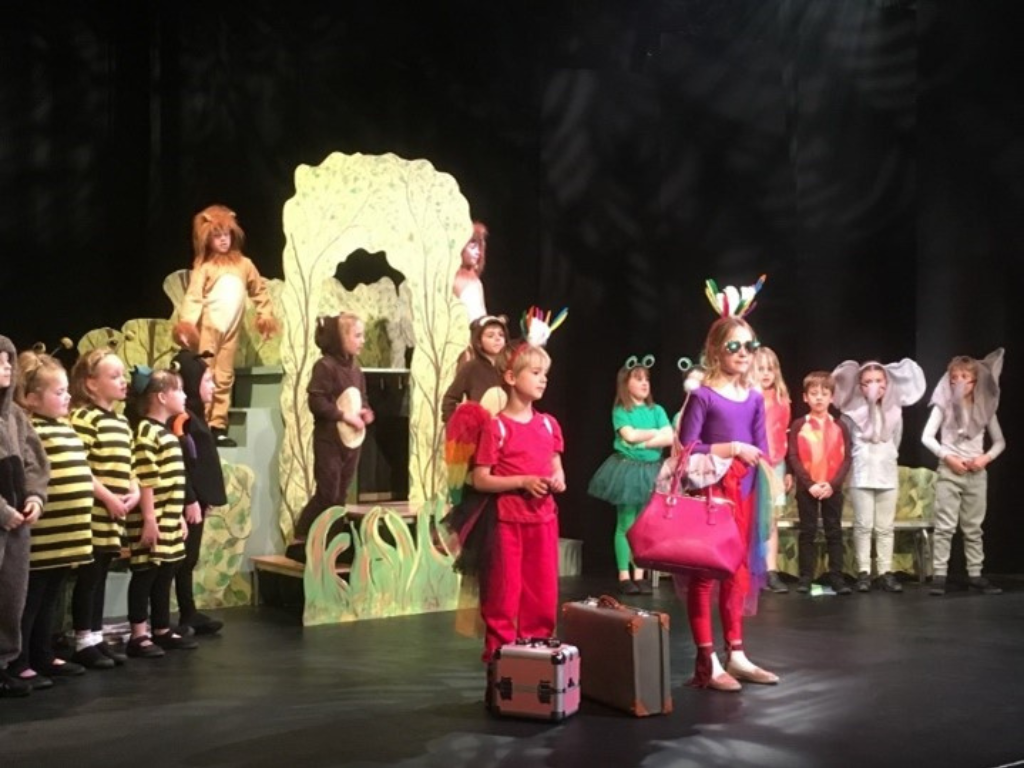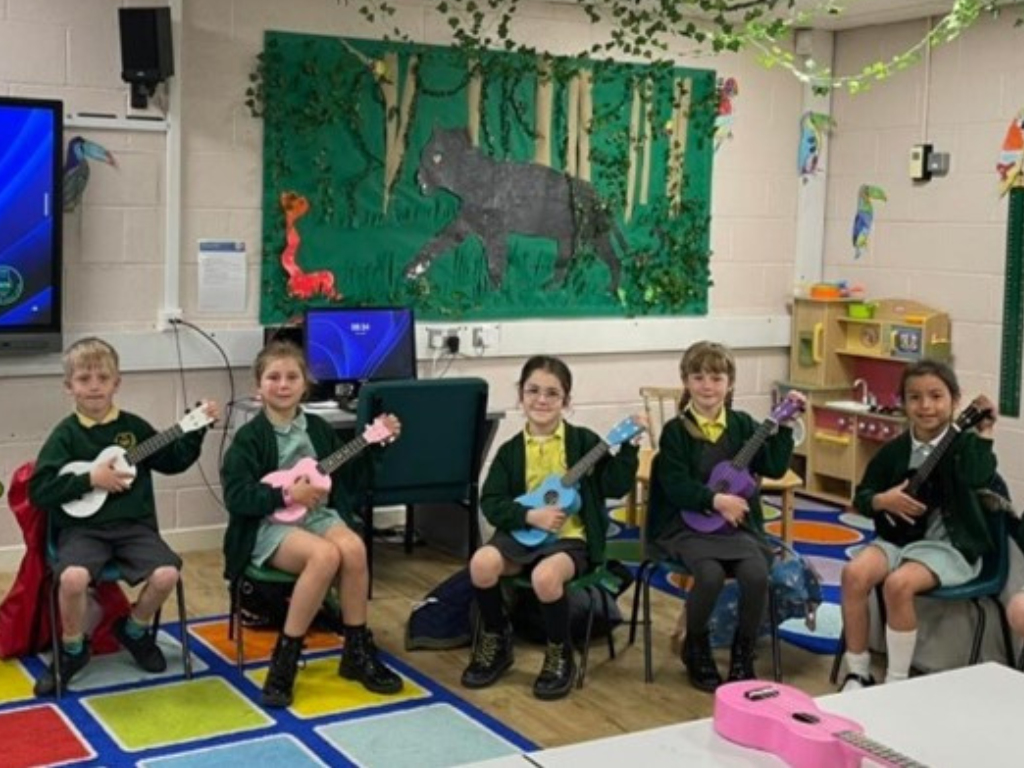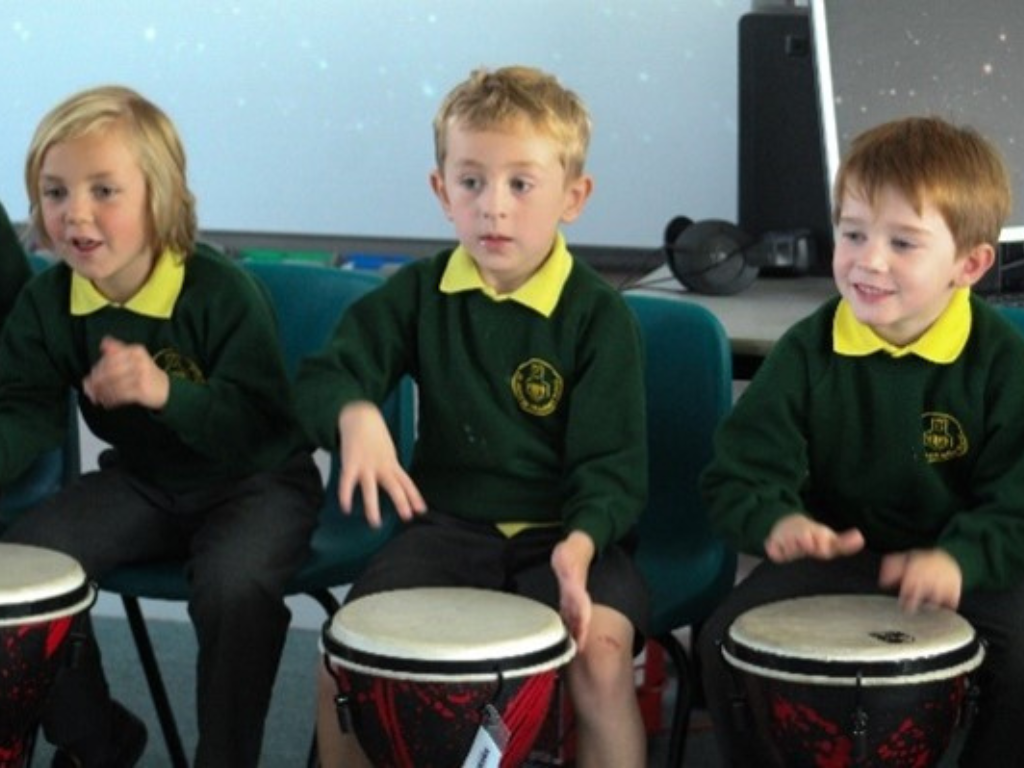In the coastal town of Whitstable on Kent’s North coast, St Alphege CE Infant School and Sunbeams Nursery stands as a beacon of creativity and artistic excellence. This remarkable institution has not only achieved Artsmark Platinum status but also proudly bears the Music Mark School recognition, setting a precedent for arts and music education.
We spoke to Jacqui Spinks, the Head of School at St Alphege, to delve into her journey of creating a musical universe through a primary arts focus.
Please can you introduce yourself?
My name is Jacqui Spinks, and I am the Head of School at St Alphege CE Infant School and Sunbeams Nursery. We are a two-form entry Infant school with an attached Nursery in the heart of the coastal town of Whitstable.
The school obtained Artsmark Platinum in 2019 and continues to advocate for outstanding arts provision, both locally and on a national level.
Why is providing arts education so important to you?
During my initial teacher training, I had some inspirational lecturers who taught passionately in the arts subjects which further fuelled my drive to raise the status of these subjects in the schools I have worked in.
Then during my teaching career, I saw first-hand the impact that the arts can have on children’s academic achievements as well as their wellbeing and “soft-skills” such as teamwork, resilience, and communication.
I fundamentally believe that schools remain the single most important place where children can access rich and inspiring arts and cultural experiences, and this should be a right for all pupils and not a luxury. Many of our children do not have access to these experiences in their lives and their cultural capital is incredibly limited when they enter school.
If we want children to value the arts and cultural education, we need to give it the focus it deserves. Enthusiasm for art must start from the moment children enter school – by the time students reach secondary school, attitudes about what matters in education will have already been established.
The national curriculum for art and design is sparse and leaves a lot open to interpretation, meaning that provision varies greatly between schools. With pressures on pupil progress for reading, writing and maths, it’s not uncommon in some schools for a whole term to pass without one art or music lesson. Our young people get so much more from engaging in art and cultural activities and the impacts on all areas of their learning can be immense.
“I fundamentally believe that schools remain the single most important place where children can access rich and inspiring arts and cultural experiences, and this should be a right for all pupils and not a luxury.”
How did you develop the strong emphasis on music and the arts at St Alphege?
One key factor for developing the arts to such a high level has been the strength of the long-standing arts partnerships we have created.
To help to strengthen the delivery of music in school, we commission a highly trained music specialist, Anita Memmott, who works in school each week to lead the curriculum and provide musical experiences and enrichment opportunities for our children. Her expertise lies in Early Years and developing musicality from a very early age which has been one of the main reasons that our music curriculum is as strong as it is.
Anita is Dalcroze trained and feeds this approach into her teaching, enabling our children to awaken, develop, and refine innate musicality through rhythmic movement. The expertise that all these artists bring to the school has enabled the growth of our staff who have worked alongside them as well as enabling our children to work with genuine artists and to see the arts as a genuine career path in the future.
Were there significant challenges you encountered when advocating for music and the arts at St Alphege?
Schools have heavily suffered as a result of insufficient funding for all aspects of education. Budgets have been cut in many areas, meaning that schools have needed to prioritise their spending and make difficult decisions about what is deemed the most important. Recruitment also remains a huge challenge in schools, ensuring we can attract and retain high quality staff with expertise in a variety of areas.
I am fortunate to be the Head of School and to be able to shape the vision for education in our school, but I am aware through my outreach work that this is not always the case in all schools. Our school is committed to providing an outstanding arts provision for all children as we recognise the value of this and the impact this has had on both staff and pupils.
The school thrives in this area due to strategic recruitment and the investment from staff and our wider community as well as courageous leadership which permeates all levels in the school.

Being the first Infant School in the South East to achieve Platinum Artsmark Status as well as having Music Mark School recognition is impressive. Can you share the impact these have had on your school and the community?
Our Artsmark Platinum award has enabled us to foster and grow strong collaborations beyond the school community. We regularly support other schools to develop their arts curriculum and to see the benefits of prioritising creativity across the curriculum.
We have been fortunate enough to have led on several funded arts programmes, such as the Artswork funded Creative Steps programme, which has not only benefitted other schools and settings in developing the arts but has also enabled rich opportunities and experiences for our staff and pupils. Schools gain so much from collaborating with others.
Engagement with other schools has allowed our staff and pupils to look beyond the school gates and they have all gained so much from working alongside others and sharing their passion and expertise on a broader level. Through these projects, our children have had opportunities to lead in other settings, allowing them to further develop their confidence and self-esteem. Our children are all under seven years old but should never be underestimated!
We are also passionate about connecting with our wider community and sharing the power of music and the arts. For example, we have set up a link with a local care home and the children from our Nursery visit the residents each week to take part in a shared musical experience, singing or playing instruments.
We also regularly engage with artists – musicians, artists, actors, dancers, photographers etc to inspire and enrich our curriculum.
We have more recently been seeking ways to influence teacher training and development and linked with The Colourstrings project in Scotland to support CPD for trainee music specialists looking to work in schools. We regularly deliver CPD to share our expertise with other schools and settings and are hoping to develop this further in the future.
What impact has the focus on arts education had outside of music and arts lessons?
At St Alphege, the arts are used as a vehicle to drive improvements in all subjects. For example, in Reading: singing, music and drama has been used routinely to unpick character intentions, plot and setting which has raised our standards in Reading at the end of the academic year in all phases and seen increased numbers of pupils achieving greater depth standard.
We have seen first-hand the impact of the Arts in school. We have seen barriers to learning disappear and children to thrive in creative environments, where normally this would not have been the case. The buzz of excitement for children and staff during large scale Arts events and experiences is what teaching is all about!

We also very effectively use the arts and music specifically to effectively deliver interventions to support the development of pupils’ speech and language skills and SEMH (Social, Emotional, Mental Health) Through involvement in arts-based projects, we have seen measurable improvements in children’s confidence, creative thinking, teamwork, communication, and leadership skills.
We have seen first-hand that better academic results come from a richer curriculum and this was evident during our most recent Ofsted Inspection in February 2023.
These are vital skills in all areas of learning and have helped to underpin learning in other areas.
“We are preparing children for a future that has not yet been decided and for jobs that may well not yet exist.”
Beyond the classroom, how have music and arts education positively influenced your students and the school community as a whole?
The arts are seen as a core subject across the school. As a result of this, our staff, community, parents, and pupils all passionately believe in the value of creativity in education. Let’s face it, school should be fun!
Our school serves a mixed community with relatively high numbers of disadvantaged pupils and pupils with SEND. We use arts and culture to support pupils from disadvantaged backgrounds, allocating a proportion of the school budget to this each year.
We are aware that many of these children do not have access to rich cultural experiences outside of school for a variety of reasons and are passionate about removing the barriers to their arts and cultural experiences
We are preparing children for a future that has not yet been decided and for jobs that may well not yet exist. The Arts and culture are intrinsically valuable, not only in enriching and illuminating our lives and emotional wellbeing, but also in the ability to have a measurable impact on our economy, society, and education.
Arts subjects create critical thinkers and develop children’s ability to problem solve. The purpose of education should be to prepare our children for a world we cannot envisage, so that when they are stuck with a challenge, they choose to think rather than remember.

What exciting plans are on the horizon for St Alphege’s music and arts program?
Recently we have been able to take our outreach to a more National level, through our work with Animate Arts, Artswork and The Royal Opera House Bridge and through championing the arts at Government level through the All-Party Parliamentary Group.
We have already forged strong partnerships within the arts and cultural sector and consistently seek opportunities to share our outstanding practice with other schools. We want to deliver more subject specific CPD on a wider level.
We are currently looking at applying for further funded opportunities alongside our long-standing arts partners, Animate Arts Company which will enable us to continue to deliver high quality CPD and support other schools in improving their teaching and practice within the arts.
In school, we are also looking at ways to interweave our art and music curriculums (dance, music art, design) to enable children to see their whole body as an instrument and to link art forms in more explicit ways.
“Make sure that the arts are embedded and consistent and not an afterthought.”
What advice could you give to someone who’s keen to increase the importance of music and the arts in their school?
- Share your passion and make sure everyone understands the impact and value of the arts/music curriculum
- Involve the children in your journey
- Don’t try to do too much, too quickly. You can’t change everything in a week.
- Visit other schools who have strength in the subject and learn from the experience and practice of others
- Make sure that the arts are embedded and consistent and not an afterthought
- Focus on quality teaching and learning and the experiences of the child
- Engage in quality CPD, ensuring sufficient and high-quality training for you and for your staff.

- Engage with networks and make connections with arts organisations and providers and links with local schools – Kent Music, Artswork, NSEAD
- Embrace all opportunities that arise as you never know how far they will take you
- Learn from others and evaluate your practice – what worked well and how could things be improved
And finally, what are your top three tips for being a music lead?
- Always passionately advocate for your subject
- Make sure music and art has space in the curriculum and that everyone sees its value
- Reach out to others, build relationships both in school and in the wider creative and cultural sector
We hope that this insight into St Alphege’s journey has been as motivating for you to read as us! We can’t wait to see what they accomplish next – we’re sure it will be fantastic.
At Kent Music we’re dedicated to supporting all schools to deliver excellent music education and instil a joy for music and creativity in pupils, staff, parents and their local community. Explore how we can support you on our website or get in touch at schools@kent-music.com.
(NB: some responses have been edited for clarity and/or length)